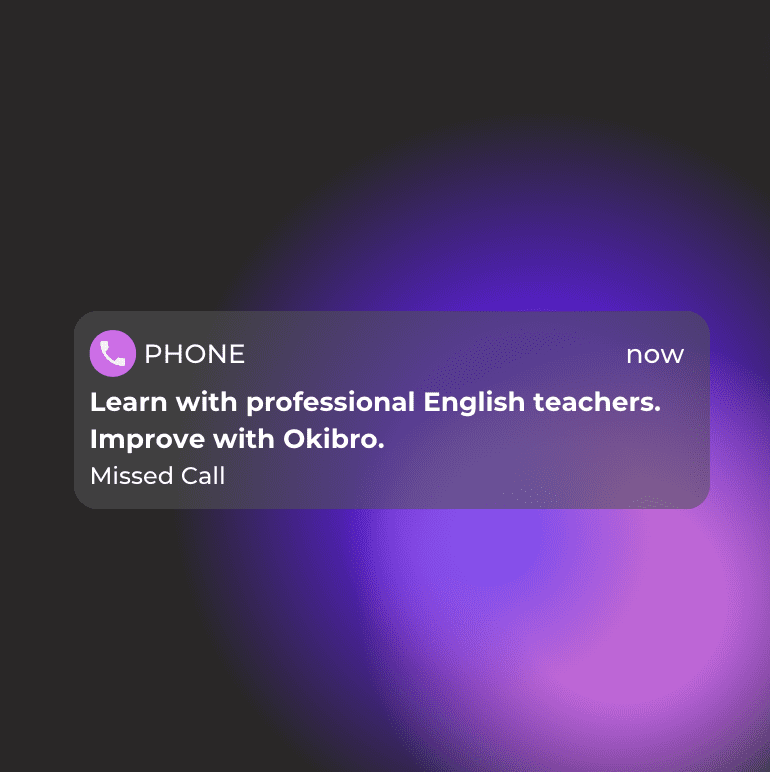Weather vs Whether: What’s The Difference?
In this article, we’re going to crack the code on two of these confusing words:
“Weather” and “Whether.”
Short answer
“Weather” is all about rain, sunshine, snow – basically, what’s happening outside your window.
On the other hand, “whether” is a word we use to talk about choices or possibilities, like deciding whether to wear a jacket or not.
So, if you’re ready to untangle this word puzzle and never mix up “weather” and “whether” again, you’re in the right place.
Let’s get this cleared up once and for all!
Definition of Weather
Alright, let’s jump into “Weather.” This word is all about the conditions outside, like if it’s sunny, raining, snowing, or super windy. Basically, when you look out the window or check a weather app, what you see or read about is “weather.”
For example, if it’s pouring rain and you say, “The weather is terrible for a picnic,” you’re talking about the rainy conditions outside.
“Weather” is a go-to word in a lot of everyday situations.
You’ll use it when planning activities (“What’s the weather going to be like this weekend?”), in small talk (“Nice weather we’re having, isn’t it?”),
OR
When discussing how the environment affects us (“I love the weather in spring”).
It’s not just about rain or shine; “weather” can also be about temperature, humidity, wind, and all that nature throws at us from the sky.
Definition of Whether
Now, let’s talk about “Whether.”
This word is totally different from talking about rain or sunshine.
“Whether” is used when you’re talking about choices or possibilities.
*It’s like standing at a crossroads in your conversation, deciding which path to take.
For instance, if you’re trying to decide between going to the movies or staying home, you might say, “I can’t decide whether to watch a movie or just chill at home.”
*Here, “whether” is introducing the two options you’re choosing between.
OR
If your friend is uncertain about joining a club, they might say,
“I’m not sure whether I should join the chess club or the art club.”
Remember, “whether” isn’t about the conditions outside. It’s your go-to word for choices, decisions, and possibilities.
It can often be swapped with “if” in a sentence, like “I don’t know if (or whether) I should bring a snack.”
So…
Whenever you’re juggling options or pondering different outcomes, “whether” is the word you want to use. It’s all about the choices and possibilities in front of us.
Remember, “whether” isn’t about the conditions outside. It’s your go-to word for choices, decisions, and possibilities.
Etymology and Historical Usage
Weather:
The word “weather” originates from the Old English “weder,” which referred to the state of the atmosphere with respect to heat, cold, sunshine, rain, and the like. It’s related to the Old High German “wetar” and the Dutch “weer.”
Historically, “weather” has always been used to describe atmospheric conditions. Its usage over centuries has remained pretty consistent.
In older texts, you might find it describing climatic conditions important for agriculture or seafaring, and this core meaning has continued into modern usage.
Whether:
“Whether” comes from the Old English “hwæðer,” which meant “which of two, whether.” It’s related to the Old High German “weddar” (meaning “which of the two”) and the Gothic “hvaþar.”
In historical texts, “whether” was used in contexts requiring a choice between alternatives. Over time, the word’s usage broadened to include more general conditions of choice or doubt.
Originally, it was more specifically about choosing between two distinct options, but in contemporary English, it has evolved to introduce indirect questions and scenarios involving any number of possibilities.
Comparative Analysis
When comparing “Weather” and “Whether,” it’s clear that these words have entirely different meanings and uses, despite sounding identical.
“Weather”:
- Connotations: “Weather” is all about the state of the atmosphere – like rain, sun, snow, wind, and clouds. It carries connotations of nature, climate, and environmental conditions.
- Usage: You use “weather” when talking about climatic conditions or the outdoor environment.
- Example: “The weather today is perfect for a picnic.” (Here, “weather” refers to the sunny, pleasant atmospheric conditions.)
“Whether”:
- Connotations: “Whether” introduces choices, possibilities, or alternatives. It has a nuance of decision-making, uncertainty, or doubt.
- Usage: “Whether” is used when presenting options or when there’s uncertainty or a need to make a decision.
- Example: “I can’t decide whether to go hiking or stay home and read.” (In this case, “whether” is used to discuss two different options or possibilities.)
Common Mistakes and Misuses
Navigating the use of “weather” and “whether” can be tricky due to their similar pronunciation, but understanding their distinct meanings helps avoid common mistakes.
Here are some errors typically made with these words and tips to remember their correct usage.
Common Errors
Confusing “Weather” with “Whether”:
A common mistake is using “weather” when “whether” is needed, especially in written English.
For example, writing “I’ll see weather he comes” instead of “I’ll see whether he comes.”
Using “Whether” for “Weather”: Comparison Table.
| Feature | Weather | Whether |
| Meaning | Refers to the state of the atmosphere (e.g., rain, sun, snow) | Used to introduce alternatives or possibilities |
| Example | “The weather is sunny today.” | “I can’t decide whether to go out or stay home.” |
| Mnemonic | “WE” for “Water & Environment” | “WH” for “WHich” option |
Extra Tip
*If you’re talking about rain, clouds, sunshine, or anything related to the atmosphere, use “Weather.” If you’re discussing choices or possibilities, or if the sentence could be rephrased with “if,” then “Whether” is your word.
Usage in Literature and Media
In literature, movies, and other forms of media, “Weather” and “Whether” are used in different contexts, each word bringing its unique meaning to enrich the narrative or dialogue.
“Weather”:
In Literature: “Weather” is often used to set the scene or mood of a story.
For example, a novel might start with, “The weather was stormy and dark, reflecting her mood.”
“Whether”:
In Literature: “Whether” is used to depict a character’s indecision or internal conflict. In a classic novel, a character might ponder, “I could not decide whether to stay or leave.”
In Movies/Media: In dialogue, “whether” is often used to express doubt or choices. For instance, a character might say, “I’m not sure whether I should trust him,” highlighting their uncertainty and dilemma.
Examples in Use
Weather (Atmospheric Conditions):
“The weather in the village was always unpredictable, much like its inhabitants.”
(Literary Fiction)
Whether (Choices or Possibilities):
“She wondered whether to confront him or remain silent.”
(Drama Film)
These examples show how “Weather” and “Whether” serve different purposes in storytelling. While “weather” sets the physical scene and can symbolize emotional states, “whether” delves into the realm of choices, decisions, and possibilities, often highlighting a character’s internal struggle or the need to make a significant choice.
Resources
For readers eager to delve deeper into the fascinating world of language and usage, there are numerous books that can enrich your understanding and appreciation of English. Here’s a selection of great reads that cover various aspects of language, grammar, and word usage:
“Eats, Shoots & Leaves: The Zero Tolerance Approach to Punctuation” by Lynne Truss.
This book offers a witty and informative look at punctuation in the English language, blending humor with practical advice.
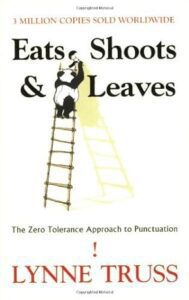
“The Elements of Style” by William Strunk Jr. and E.B. White.
A timeless guide, this book is essential for anyone who wants to improve their writing skills, offering clear rules about grammar, composition, and style.
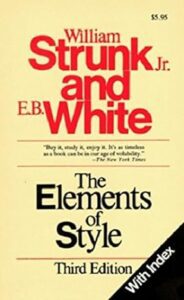
“Word Power Made Easy” by Norman Lewis.
An excellent resource for building a more effective vocabulary, this book also delves into the correct usage of words.
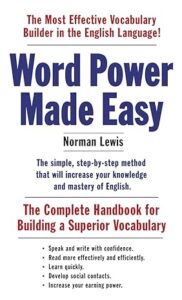
“The Mother Tongue – English And How It Got That Way” by Bill Bryson.
Bryson explores the idiosyncrasies and peculiarities of the English language in an engaging and accessible way.
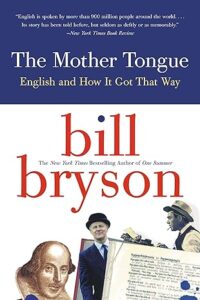
“Between You & Me: Confessions of a Comma Queen” by Mary Norris.
Written by a former New Yorker copy editor, this book provides insights into the challenges of editing and the nuances of language.
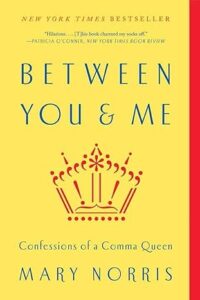
“Dreyer’s English”.
An Utterly Correct Guide to Clarity and Style” by Benjamin Dreyer:** This modern guide offers practical and witty insights into the art of writing well, covering everything from grammar rules to style preferences.
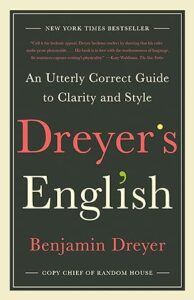
“Through the Language Glass: Why the World Looks Different in Other Languages” by Guy Deutscher.
This book explores the relationship between language, culture, and thought, examining how our mother tongue can shape the way we see the world.
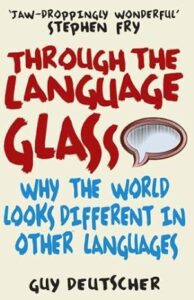
“The Etymologicon: A Circular Stroll Through the Hidden Connections of the English Language” by Mark Forsyth.
Forsyth delves into the fascinating and sometimes surprising connections between words, providing a witty and informative exploration of English etymology.
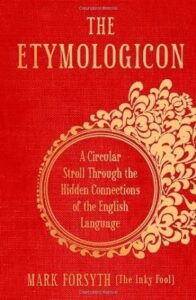
Each of these books offers a unique perspective on language, from its history and evolution to practical tips on usage and style. They are perfect for anyone looking to deepen their knowledge of English, whether for personal growth, academic purposes, or simply out of a love for the quirks and beauty of language.
